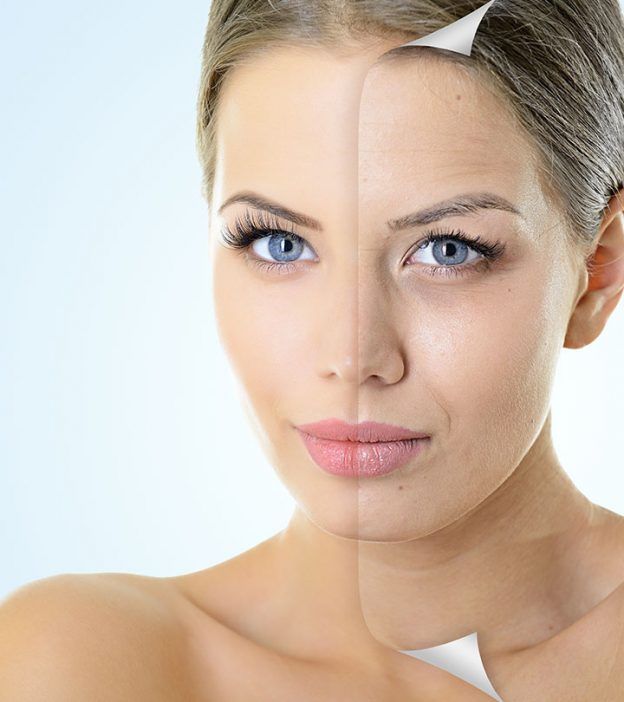
Skin aging is a highly complex process. Our current understanding of this process, while not complete, has indicated that the intricate and intertwined processes of oxidation, inflammation, and glycation play major roles. Each of these is highly impacted by diet.
The clinical features of skin aging are well documented and a common question in clinical practice is whether dietary choices have any impact on these features. Based on research ranging from long-term human population to intervention studies, laboratory investigations, and animal studies, a diverse body of data links diet to skin aging.
This research provides significant guidance when discussing nutritional strategies that can promote healthy skin aging. Skin aging is particularly impacted by the processes of oxidation, inflammation and glycation. For each, dietary choices can play a large role in modifying these forces. Specifically, certain dietary patterns, foods, nutrients, and compounds have the ability to either potentiate or combat these processes.
It is well documented that certain populations differ in the rate of development of skin aging. Multiple large scale studies have reported that in those with healthier dietary patterns, fewer fine lines and wrinkles are seenIn one study of over 500 non-diabetic subjects, it was found that as blood glucose levels increased, perceived age increased.
Glycation is another factor that accelerates aging of the skin. Glycation is distinct from photoaging, but is closely intertwined. Glycation refers to the non-enzymatic process whereby sugar molecules covalently bond to proteins, lipids, or nucleic acids. The resulting products are known as advanced glycation end products (AGEs) or glycotoxins.
AGEs have a large impact on the collagen and elastin fibers that maintain the structural framework of the skin and provide resilience and elasticity. Glycation results in intermolecular collagen cross-linking, resulting in increased stiffness and vulnerability to mechanical stimuli. In addition, cross-linked collagen cannot be repaired as well. Collagen is highly susceptible to glycation, in part due to its long half-life, and may undergo up to a 50% increase in glycation over a lifetime. Glycation is closely related to oxidation and inflammation as well.
A number of research studies have documented the link between diet and skin aging. These results may be used to develop dietary recommendations that combat the forces of oxidation, inflammation, and glycation. For those wishing to promote healthy skin aging, a diet that incorporates these strategies is recommended, with a focus on foods that are naturally rich in antioxidants, are anti-inflammatory, limit hyperglycemia, and inhibit glycation.
In addition to this, additional dietary supplements can help with anti-glycation and antioxidants.
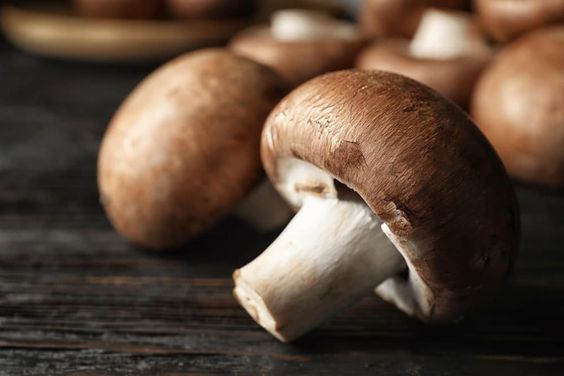
Ergothioneine is a sulfur-based amino acid. Amino acids are important compounds that help the body build proteins . Ergothioneine was discovered in 1909 by Charles Tanret, a French pharmacist and chemist.Humans have an ergothioneine transporter protein that helps transfer this amino acid into our cells more efficiently, but we cannot produce it in our bodies, and scientists have found that ergothioneine levels decrease as we age.It has also been found in high levels in skin cells, and research suggests that it may reduce the levels of free radicals in skin cells caused by exposure to ultraviolet radiation from the sun and protect the integrity of DNA in skin cells exposed to UV light.
Ergothioneine’s antioxidant benefits are not just for internal health but external beauty as well. UV radiation from the sun causes significant changes to our skin structure throughout our lifetime, and not just from sunburns. Everyday exposure to UV light causes “photoaging,” or premature aging of the skin, characterized by wrinkles, fine lines, and discoloration — outcomes that everyone wants to avoid.
Initial research suggests that ergothioneine may have dermatoprotective effects, helping protect against accelerated aging caused by UV light exposure. In a test tube study of human skin cells, ergothioneine suppressed an enzyme activated by UV radiation that degrades collagen.
L-carnosine
L-carnosine is an effective free radical scavenger and anti-glycation agent that inhibits the formation of AGE and its cross-linked proteins, helping them to keep functioning properly. Because of its dual anti-glycemic and anti-oxidant effects, it is used in a large number of anti-aging products.
Alpha-lipoic acid

ALA is an extremely versatile nutrient and a powerful coenzyme and antioxidant. Also known as alpha-lipoic acid, this versatile compound is both water-soluble and fat-soluble and can act almost anywhere in the body. Our bodies naturally produce a small amount of ALA, but you can also find it in liver and kidney meat, brewer’s yeast, potatoes, carrots, beetroot, peas, broccoli, spinach and Brussels sprouts.
Alpha lipoic acid supports healthy glucose metabolism by regulating the enzymes involved in glucose oxidation. Maintaining healthy glucose metabolism is fundamental to preventing the formation of advanced glycosylation end products (AGE), which reduce the body's protein, lipid and nucleic acid functions. In addition to supporting healthy glucose metabolism, lipoic acid's antioxidant properties fight free radicals and reduce oxidative stress, which is strongly associated with the production of AGE. Lipoic acid scavenges free radicals and regenerates antioxidant vitamins C and E and glutathione.
Gymnema
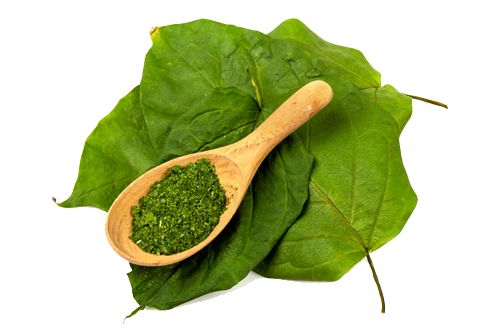
Gymnema is a rare herb with a long history of medicinal use in Ayurvedic medicine. It is commonly known by its Hindi name "gurmar", which means "sugar destroyer". This powerful herb contains the phytochemical "gurmarin," which alters the tongue's ability to perceive sweet and bitter tastes. A study conducted in India showed that the herb's atomic arrangement blocks the sugar receptors of the taste buds. As a result, the sugar taste buds are not stimulated even when sugar is ingested, and it helps control sugar cravings. The main active ingredient in gymnema, gymnema acid - a compound with a structure similar to glucose but with a completely different action in the body, gymnema acid blocks the absorption of sugar in the intestine.
Tinstar ANTI- GLYCATION PILLS are made with multiple anti-sugar and anti-oxidant ingredients, and an original and effective anti-sugar formula that inhibits sugar at the source and blocks it in the body, combining internal and external factors to fight against skin aging problems caused by glycation.
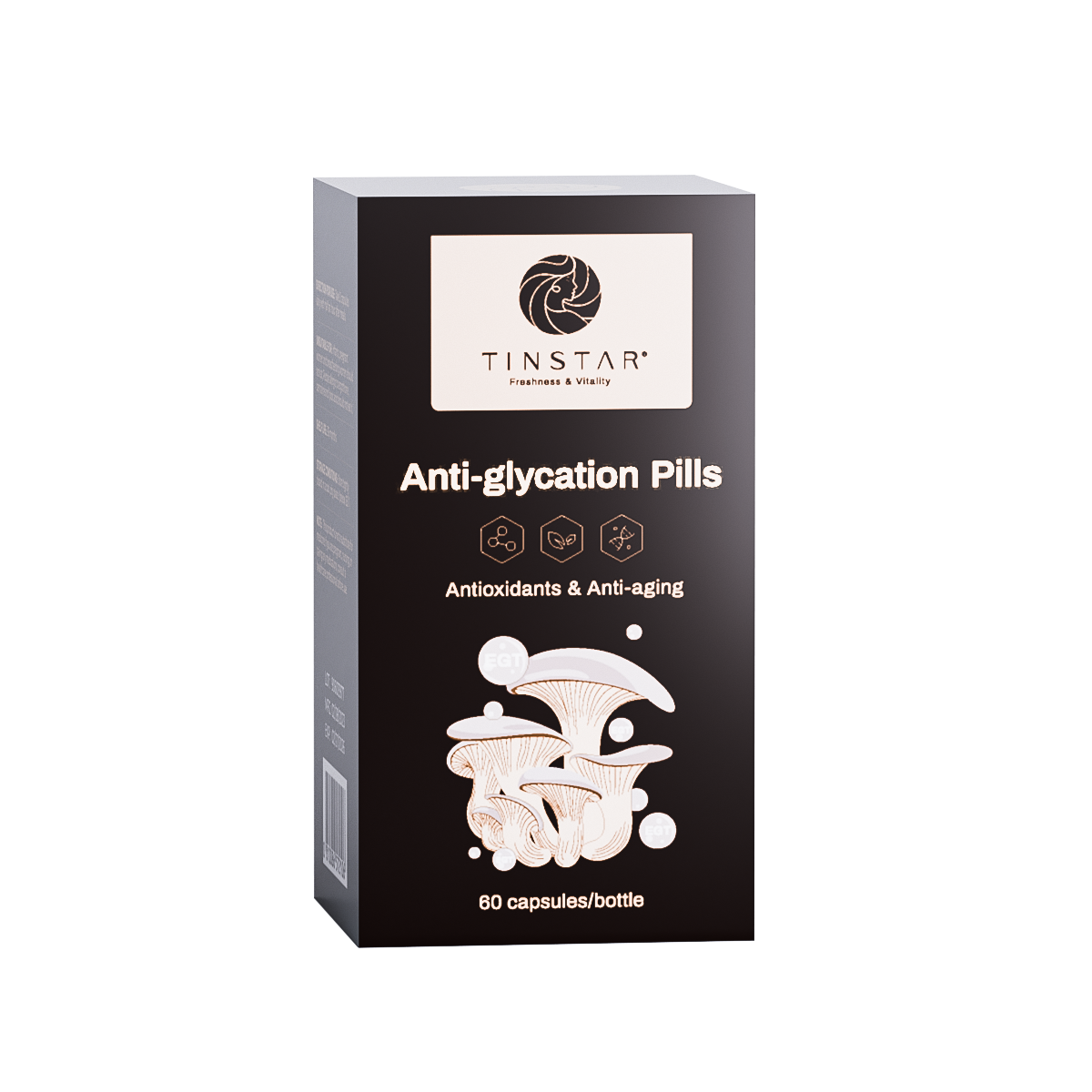
Glycation of our body tissues is a normal result of aging. Those with poor glycemic control will experience more glycation and premature aging.
Ultimately, glycation and mitochondrial dysfunction combine to lead to faster aging.
Fortunately, scientists have identified several nutrients that support healthy mitochondrial function while reducing glycation and its damaging effects. These nutrients work together to restore cellular energy levels while reducing tissue damage.
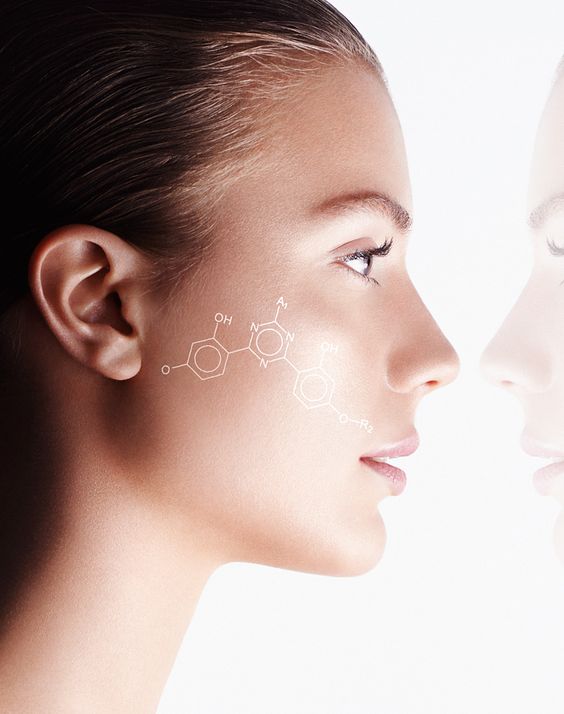

扫一扫关注公众号